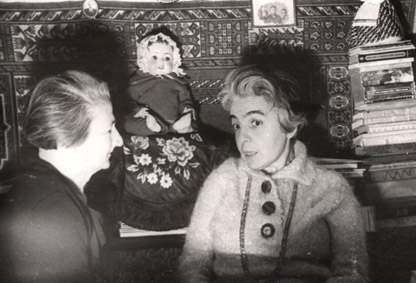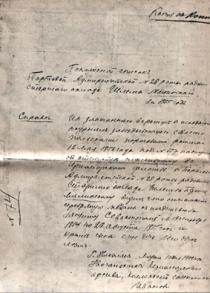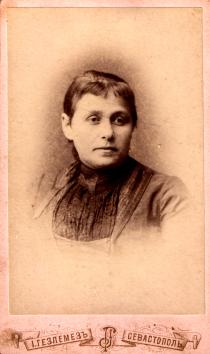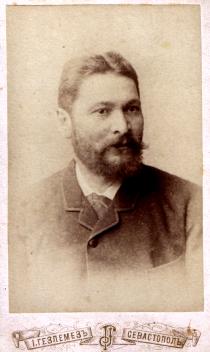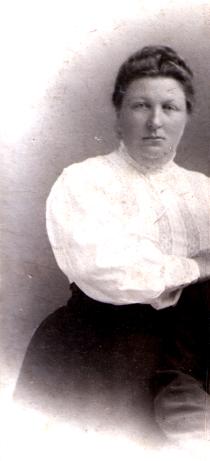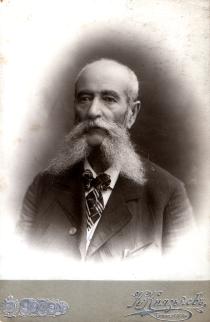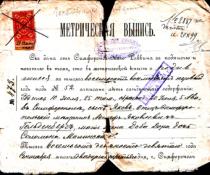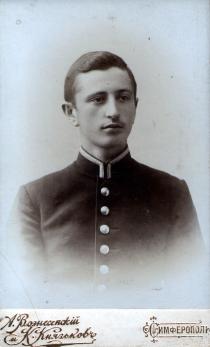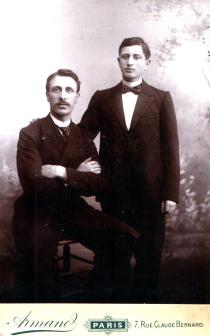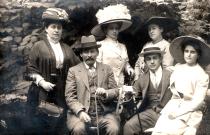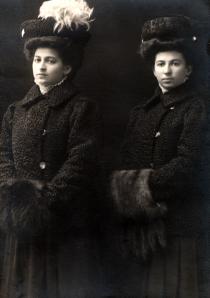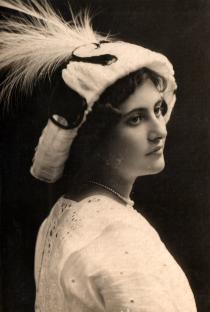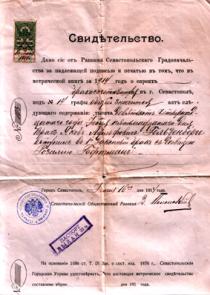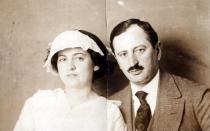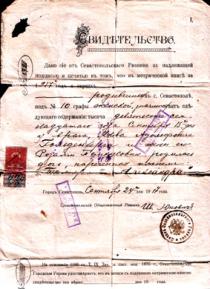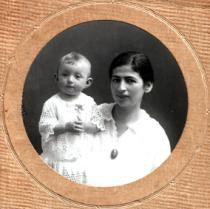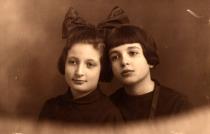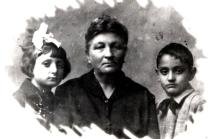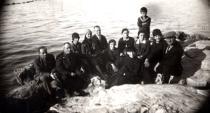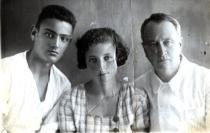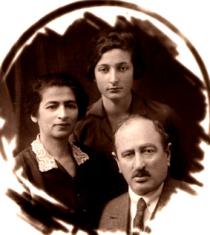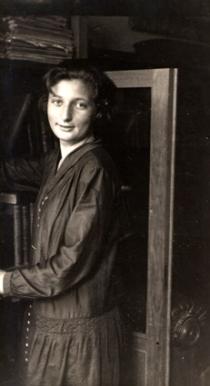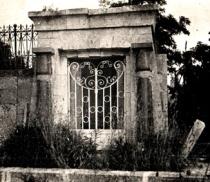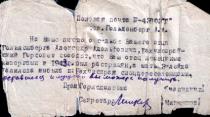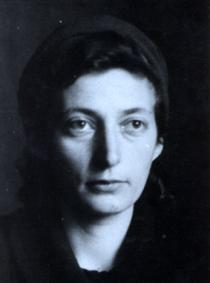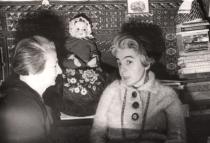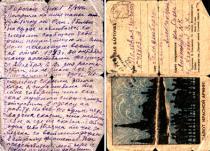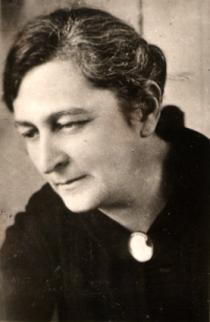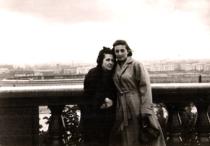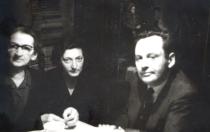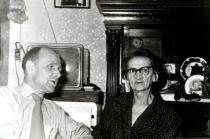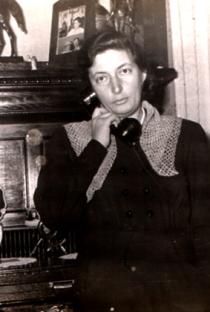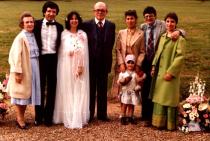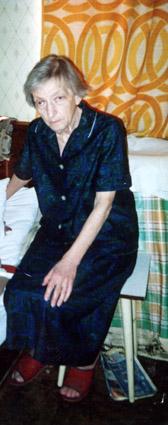This is me to the left in the our hostel in Moscow with my cousin Renata in 1987.
In 1938 I was offered a job in French chair of Moscow Foreign Languages Institute, I graduated from. I never gave up teaching. I taught French and practical French grammar. It was a difficult job. I would not wish anybody such a job.
I worked as a senior teacher, and my salary was inconsiderable increased. I was very happy to make two useful things during my pedagogical career. We did not have French textbooks.
We had to publish our own.
I along with the coauthor prepared student manual with exercises for the French department and French Grammar textbook. Those books were used for quite a while. Then there were couple of editions for our students to be provided with the manuals.
We received rather skimpy emolument for such work, but the pleasure was entirely ours. We did a good job that made teachers' and students' lives easier. I began to work with post-graduate students.
Of course, It took a lot of time to have classes with them.
So, I was satisfied with my job.
Our life was difficult and joyless. I used to get ill very often, my mother was constantly unwell. I kept late hours at work, had classes with my students ,but still we could hardly make a living.
Mother took care of the household, cooked, cleaned and went shopping. I still remained modest and shy, did not want to be a burden to anybody. We lived modestly, did not have any guests or receptions. I remained in the institute until 1977. Then I got unwell and retired.
I did not have blood brothers or sisters, but I had a lot of cousins in Russia and France. I loved them as my brothers and sisters. They all emigrated from Russia in childhood, but they kept in touch with mother and me. All my cousins came to Moscow for several times. I was in Paris once.
My cousin Renata could not obtain higher education. She was very civilized and educated. Renata was an extraordinary personality. She was educated in-depth. She got in touch with the artists, sculptor, doctors and philosophers.
Many of them dropped their mundane professions and became activists in catholic culture. She professed Christianity, and became catholic. It was not an unexceptional move for France in those times.
Cultural French elite, being dissatisfied with the cultural and spiritual life, was interested in religious matters. There were several communities at catholic cathedrals, exquisite intelligentsia got together there.
When father found out that she changed Judaism, he was amuck. She had to be suppressed by Sturm und Drung. [German: "Storm and Stress", literary movement of the late 18th century that exalted nature, feeling, and human individualism and sought to overthrow the Enlightenment cult of Rationalism]. It was a tragedy, since parents were deeply religious Jews.
Father gave in, after multiple scenes and scandals. She rescued almost all her kin during occupation of France by Germans. She helped them owing to catholic cathedrals and acquaintances with religious Catholics.
Renata's friends sheltered her. After war Renata left for Israel for permanent abode. It was her cherished dream to live there. She was involved in great propaganda in Israel.
She was invited to France. She went there for a number of times. She took floor in many different places telling about Israel and its life. She was received by the pope; it happened in 1960s,
I do not know the details as Renata and I lived in different countries and we did not get in touch that often. She had great spiritual connections.
She wrote about her life, and on her decision to profess Catholicism in her book "Waiting for the Dawn". [Author-Renata Goldenberg, published in French in Paris in 1985] It is a high literary piece.
Renata died in Israel in Jerusalem in 1989.
